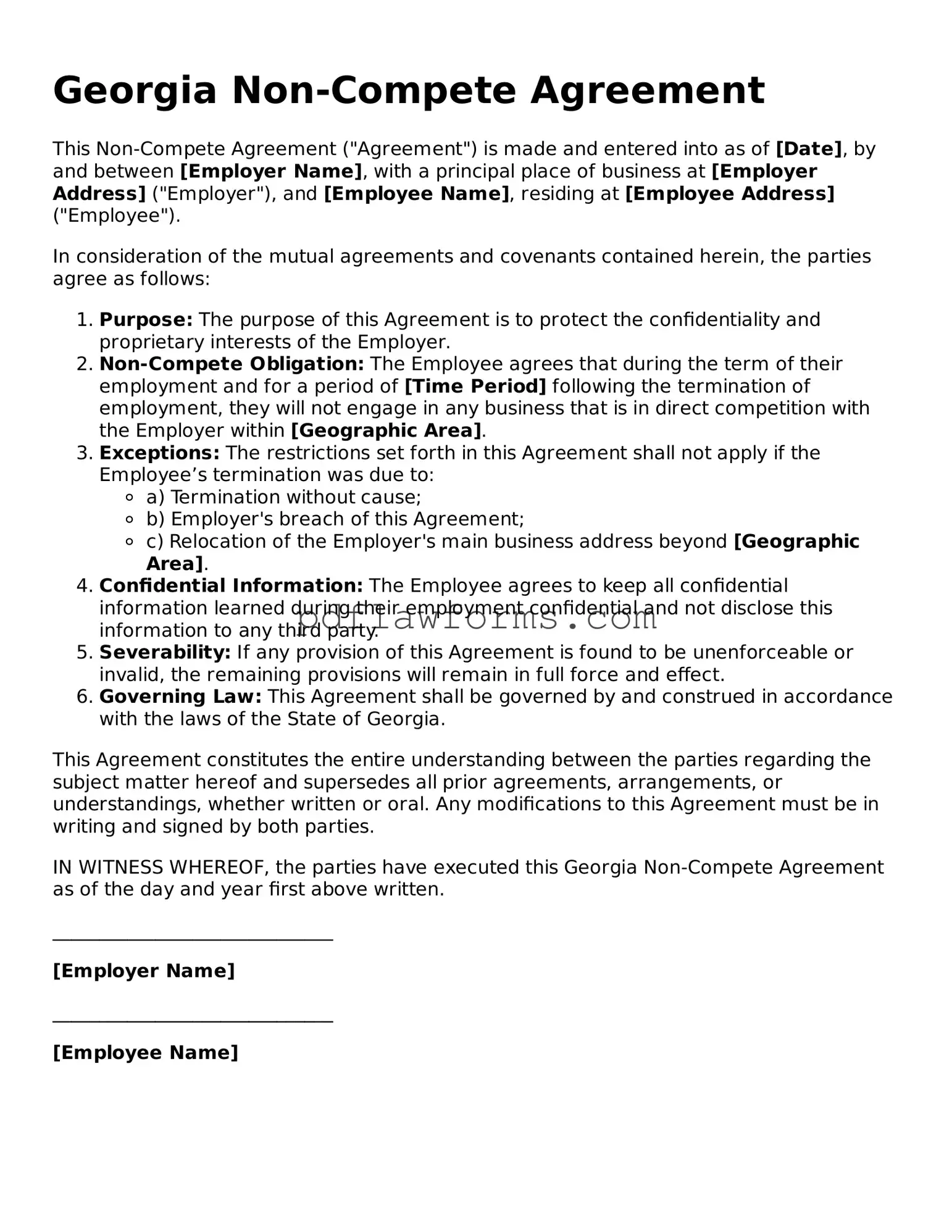Non-compete Agreement Form for the State of Georgia
A Georgia Non-compete Agreement form is a legal document that outlines the terms under which an employee agrees not to engage in business activities that compete with their employer after leaving the company. This agreement helps protect business interests while providing clarity on the expectations between the employer and employee. If you're considering using this form, take the next step by filling it out; click the button below.
Make My Document Online

Non-compete Agreement Form for the State of Georgia
Make My Document Online
You’re halfway through — finish the form
Edit and complete Non-compete Agreement online, then download your file.
Make My Document Online
or
⇩ Non-compete Agreement PDF
